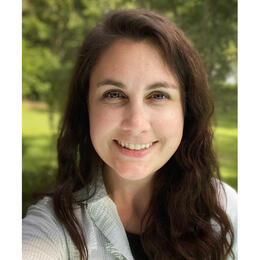Op-eds and Letters to the Editor are opportunities to tell your community – and elected officials – about environmental issues important to you. Short pieces of persuasive writing, these articles can introduce an idea, or comment on a policy, law, or project already under discussion.
But how do you get started? How do you choose a topic? How do you submit for publication? A group of college students and recent graduates teamed up with Audubon Florida staff to find out!
After tuning into an introductory webinar, the participants met in small groups to brainstorm topics, then worked one-on-one with Audubon to develop outlines and complete final drafts.
Orion Morton, a recent grad from the New College of Florida and kayak guide, wrote about pollution in Sarasota Bay. "The core of the problem is that the level of nutrients flowing into the bay, like nitrogen and phosphorus, is too high, coupled with insufficient marine ecosystems to trap and filter those nutrients," he explains (Click here to read his full op-ed).
"Writing an op-ed was appealing because I wanted the people living in our area to know that we do have an active community of young folks working on defending our natural areas," he says, "and then all of our voices together can truly make a difference." As a result of his op-ed, the Suncoast Waterkeepers reached out to Orion, and he now sits on their board as Secretary!
Rachel Sales, a PhD candidate at the Florida Institute of Technology, wanted to highlight plastic pollution on Melbourne Beach, and how her fellow beach-lovers could act. “As an adult, I still love a beach day, and for me, that usually takes place at Melbourne Beach,” she wrote, “However, instead of building sandcastles, my beach days today often consist of picking up plastic litter." She urged her state representatives to co-sponsor a bill that would allow communities to ban single-use plastics without preemptions. (Click here to read her full op-ed).
Reaching an audience outside of academia appealed to her, Rachel explained when reflecting on the process. “I enjoyed researching my topic,” she continued, “And I thought I had a good understanding, but I quickly realized that I had a lot to learn, and that was fascinating to me.”
After Space Coast Daily published her op-ed, members of the community reached out to Rachel. “People are actually really interested in op-eds,” she wants other college students to know. Their words make a difference.
Across the state, Kevin McGregor of St. Petersburg College wrote about city tree plantings for the Tampa Bay Newspapers. “We can work with arborists and native plant nurseries to begin the transition from oaks to more Florida-friendly trees by promoting policies that incentivize those trees and continuing to share information so people can make better choices,” he wrote. (Click here to read his full op-ed).
Kevin wanted to participate in the op-ed program after drawing inspiration from past conservationists. “I had read ‘Natural Rivals’ by John Clayton profiling Gifford Pinchot and John Muir's relationship and journey in guiding the conservation and formation of America's Public Lands,” he says. “A valuable tool that both men had used was persuasive writing, painting images of natural wonders and instilling the values these places offered.”
“The process of writing Op-Eds is really quite engaging,” he continued, especially “needing to think about how to relate academic and scientific observations for an audience that you will never see, but hopefully inspire to action.”
***
Op-eds and Letters to the Editor are open to everyone, from community leaders to concerned citizens. At Audubon, we are inspired by the passion each student and recent graduate brought to their opinion piece.
Are you interested in becoming part of the next Letter to the Editor program? Let us know at flconservation@audubon.org!




